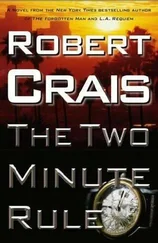The sun had set without bringing the telephone call that Ashmead was expecting. He was beginning to worry it might never come—or come bearing the wrong message.
Anything could go wrong, and something usually did: Yael’s informants might be in error and the Islamic Jihad’s martyrs might never show up in the hotel lobby to check in one floor below; Zaki’s agents might have swallowed Iranian/Palestinian/Libyan disinformation whole and thus misdirected Ashmead’s team to the wrong city, the wrong airport, or even the wrong terrorists: the Libyans, at least, were getting better at tradecraft—the holy warriors his people were running to ground might be decoys carrying a suitcase loaded with lead bars and not the bomb.
One thing Ashmead was sure of: there was a bomb and there was a terrorist operation in progress that could change the face of the world, kick off a Gulf spasm war of hideous proportions, or even trigger a nuclear exchange. The fact that these risks were unacceptable to Langley and Ashmead’s Stateside superiors in the National Intelligence Tasking office gave the Islamic Jihad a peculiar advantage upon which the Libyans certainly were counting. A successful nuking of Home Plate would tempt the US to retaliate against the nations involved—Libya and Iran, at least, since Palestine was wherever the exiles hung their AKs—and no American strategic analyst at home in McLean or field collector from Defense or State on-site could bring himself to believe that the budding Pan-Islamic front would risk nuclear annihilation by an aroused superpower.
But the desk boys didn’t understand what martyrdom meant to the Muslims, except perhaps for Marc Beck, who was on the other side of a very high interagency fence but might just be Ashmead’s best hope. Beck had the balls to go against the consensus and the clout to override Stateside qualms about taking action which wouldn’t long remain covert, and taking it in a Gulf State.
Whether or not they got a go order, whether or not their information was correct, they were already inserted and Ashmead was pulling every string his puppeteers could hand him to make sure that if such an order was forthcoming, no Islamic Jihad members commandeered that jumbo bound for Washington International.
Slick, somewhere behind Ashmead, cleared his throat.
The Covert Action Chief turned and regarded his deputy: Slick had donned a thobe —the white, full-length Saudi shirt—which hid his black jumpsuit the way dark glasses hid his pale eyes and a red-and-white Saudi ghutra-and-aghal headdress covered his Western-cut hair. With his bearded chin and his deep tan, Slick would do, even if he had to carry on a conversation: even Ashmead’s sister had been fooled by Slick’s Omani-accented Arabic.
Slick said, “Salaam, Hajji,” soberly; then in English: “I’m going to go check the car again.”
Hajji meant pilgrim and it was Ashmead’s code name for the operation. Slick wanted to check the Mercedes in the garage because it was in the garage, where anyone might slap a load of plastique up against the shocks or jimmy the locking gas cap to put any of a number of detonating devices in its gas tank. Slick had just returned from checking the bugs and passive surveillance equipment ready to monitor whatever might occur in the Islamic Jihad’s suite directly below: since they hadn’t been able to determine whether the bomb was radio detonated, they’d had to make sure that none of their own devices could trigger it.
What no one wanted, and what Ashmead had had to promise his brother-in-law—Turki ibn Abdul Aziz, head of the Saudi Secret Police—there would not be, was a nuclear explosion in the middle of Riyadh.
“Wait until we get a go or a no-go, Slick; I don’t want to be sitting here wondering where the fuck you are.”
“A no-go? You still think they’ll pass? After everything we went through to get those heat and radiation signature detectors up and running? And calling in the Saudi National Guard? And the can-opener?” The “can-opener” could peel back the metal of an aircraft like a sardine can.
“Don’t know, Slick.” Ashmead switched to Arabic, telling Slick that the ghazzu —raid—would take place or not, Insh’allah —as God wills; that the Ikhwan —brothers of the army, in this case the Saudi National Guard’s anti-terrorist squad—were ready, and so was the team.
Just then the phone rang, and Ashmead gestured in its direction.
Slick went to answer it, leaving Ashmead with his thoughts once again. It had been less than ten years since a Saudi princess and her unacceptable lover were marched, tranquilized, into a square and publicly beheaded. Ashmead had been there, with his sister and Turki. The veneer of civilization here was still perilously thin; anything could happen. Turki was trying his best to help Ashmead with this operation—not only were they brothers-in-law, but Ashmead had been pivotal to the negotiations that facilitated the training and equipping of the Saudi National Guard by a private American company in California with ties to the Agency. So Turki owed him one, but could easily be overruled by others higher in the House of Saud—there were too many members of the royal family in Riyadh to evacuate while maintaining security, and most of those wanted assurances Ashmead couldn’t give that the bomb wouldn’t explode within their territorial borders.
Slick palmed the phone: “It’s Qadi. He wants to talk to you.”
“Qadi” was Arabic for “judge,” and Turki’s code name.
Ashmead got up and took the receiver from Slick: Turki’s voice was regretful as the police chief told Ashmead that the Saudi government had not yet given the operation its sanction. “Still, Ikhwans await with Elint, as we discussed—there is a higher law than that of the Majlis al Shura” —the Consultative Council—“and it is Shariah” —Islamic Law. “None wants to see the entire Kingdom become like al rabba al khali ”—the barren lands. “ Salaam alaykum, Hajji .”
“ Wa alaykum as salaam, Qadi ,” Ashmead replied wryly—“And upon you be peace.”
Slapping the phone irritably into its cradle, Ashmead hoped to hell it would be peace that came upon the Saudis, and not the cleansing peace of a nuclear fireball, either.
He shook his head when he encountered Slick’s questioning gaze: “They’re fighting it; they don’t want it to happen here, and I can’t say that I blame them.”
“Then where?”
“Over clean water, maybe—a shoot-down. That’s what I’m hoping, anyway. But definitely not in this hotel—it’s the airport or nothing.”
Slick flopped down on the Marriott-modern couch: “Bugger all. That means Elint’s got to go aboard.”
“Unless we can cut that girl terrorist loose from her crew if she goes down to the restaurant for dinner; unless we can determine that there’s no radio-detonation option; unless we can do better than a bomb blanket and a big apologetic smile if something goes wrong, I halfway agree with them: if the gas doesn’t hit fast enough, and we can’t be sure it will, one of them could still conceivably make it to that suitcase before we get in the doors and windows and grease ’em. So it’s up to you and Jesse to see if you can’t seduce her away from them so that we can interrogate her: if they lose her, they’ve lost their commander and the whole operation might well go on indefinite hold. If we get a go order.”
“We’d better get it soon, or anything but trying to gas ’em and pry ’em out of that plane will be out of the question. That bitch is a Palestinian; I’m not holding my breath that she’s going to fall madly in love with me at first sight.”
Читать дальше












